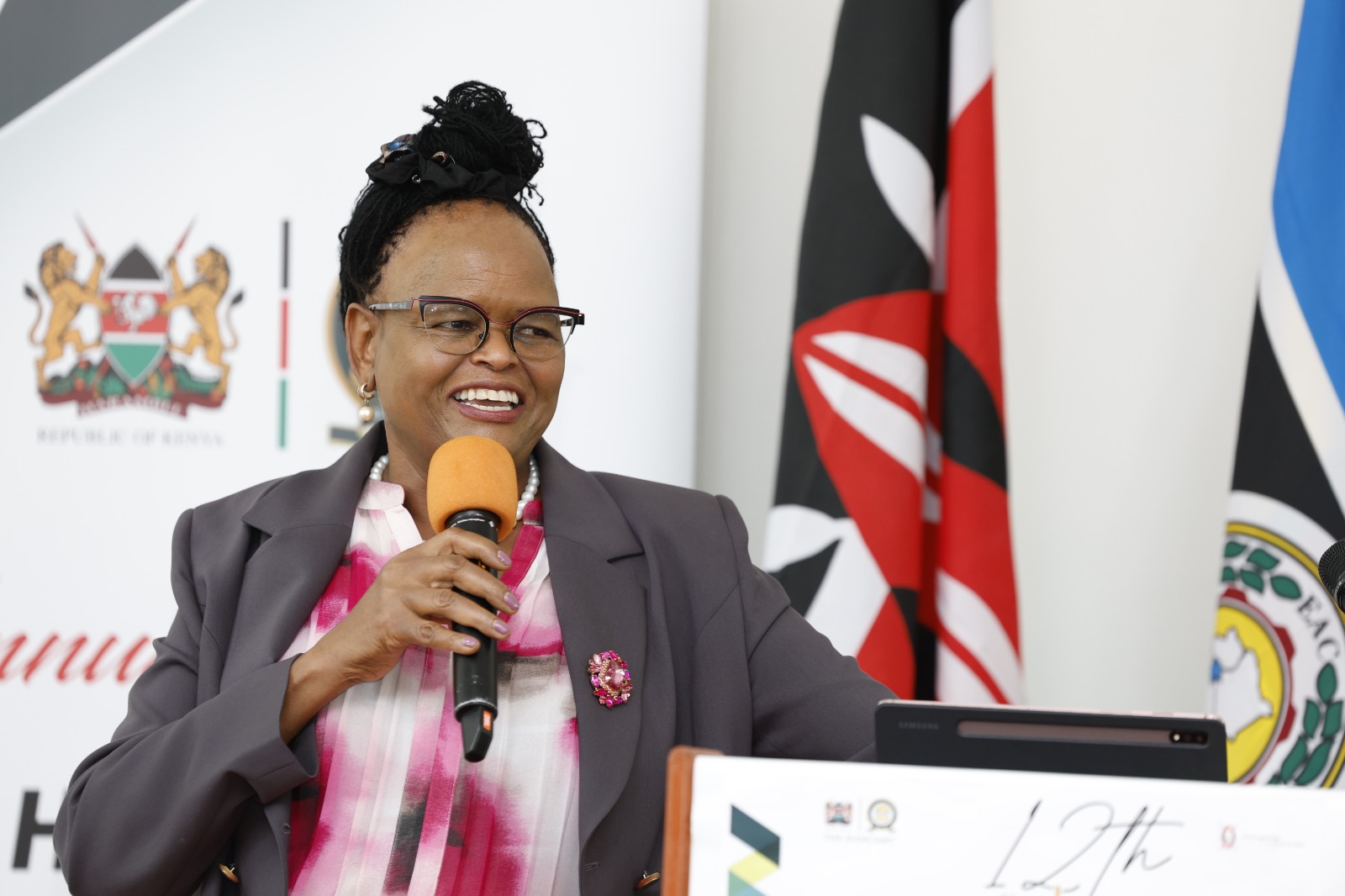
Koome launches Mahakama Popote guidelines for virtual courts » Capital News
MAKUENI, Kenya, Jun 25 – Chief Justice Martha Koome has launched Mahakama Popote Guidelines, a set of protocols governing the Judiciary’s virtual case management system that enables judicial officers to handle matters across regions using technology.
The Mahakama Popote program has been implemented in the Magistrates Courts—an innovative initiative designed to optimize the deployment of judicial officers and enhance service delivery across the country.
This program allows judicial officers to handle cases regardless of the court station in which they were filed, thereby making use of available human capital more efficiently.
Speaking during the opening of the 12th Annual Heads of Station Forum in Makueni on Tuesday, CJ Koome said that since the inception of the program in October 2022, Mahakama Popote has handled 17,389 cases, with 12,940 concluded as of March 2025.
“This innovation removes geographical barriers and promotes flexibility, efficiency, and timely access to justice,” she noted.
The Chief Justice also praised judicial officers for their resilience and dedication during recent democratic and political challenges, highlighting instances where urgent bail applications and habeas corpus petitions were heard outside regular hours.
“Even in these trying times for our democracy, the Judiciary will stand firm as the guardian of the rule of law,” she affirmed.
The CJ called on judicial leaders across the country to deepen their commitment to efficient, ethical, and people-centered delivery of justice.
The forum, themed “Enhancing Access to Justice through Efficient and Sustainable Registry Operations”, brought together Heads of Station from 143 Magistrates’ Courts and 14 stand-alone Kadhis’ Courts.
Effective registries
The Chief Justice emphasised the critical leadership role played by these officers, who supervise over 80 percent of Judiciary staff and serve as the first point of contact for most court users.
“The way we lead—from our commitment to timely delivery of judgments to our supervision of registry operations—defines whether the Judiciary thrives or falters,” said Chief Justice Koome.
While underscoring the importance of registry operations in public perception of the Judiciary, Justice Koome directed Heads of Station to take full responsibility for supervising registries and collaborating effectively with court administrators.
She condemned reported corruption within court registries, particularly the practice of demanding unofficial payments for services, and reiterated her commitment to integrity and accountability.
“We are already paid to serve the public. There is no justification—moral or legal—for demanding extra payments from those seeking justice,” she stated.
The Chief Justice urged Court Integrity Committees to become active forums for addressing unethical conduct and called for the escalation of serious matters to the Judiciary Ombudsman, the Chief Justice’s office, or the Ethics and Anti-Corruption Commission.
Presenting performance data from July 2024 to March 2025, Chief Justice Koome lauded the Magistrates’ and Kadhis’ Courts for maintaining high Case Clearance Rates (CCR):
Magistrates’ Courts achieved a CCR of 97.3 per cent, with 62 courts exceeding 100 per cent.
Kigumo Law Court led in both criminal (156per cent) and civil (236 per cent) case clearance.
Kadhis’ Courts posted an overall CCR of 97 per cent, with Kwale Court leading at 144 per cent.
Heads of Station were directed to audit and clear all cases pending for over three years and to implement Rapid Results Initiatives (RRIs) for uncontested succession matters before December 20.
Tackling GBV
Makueni County Deputy Governor Lucy Mulili said Gender Based Violence (GBV) cases are on the rise in Makueni and that she is glad that the Judiciary has expedited them.
“I am happy with the progress in the resolution of those cases. Makueni County is now budgeting for succession cases to assist at the ward level. So, we held several clinics and for the first time we were shocked that most people, even the educated ones, don’t know about succession issues,” she said.
Speaking at the same occasion, Chief Registrar of the Judiciary Winfridah Mokaya noted that the forum provides a structured mechanism for engaging Heads of Stations on critical themes including supervision, discipline, resource utilization, staff welfare, infrastructure, and service delivery.
“By coming together in this forum as the judiciary and administrative Leadership of the courts, we are also able to reinforce our constitutional obligation to ensure the efficient functioning of courts, promote a unified culture of performance, ethics, and institutional excellence,” said CRJ Mokaya.
The CRJ affirmed that no court station will face further budget cuts under the current ceilings.
“We remain committed to ensuring courts are adequately facilitated, even as we operate below our optimal funding threshold”.